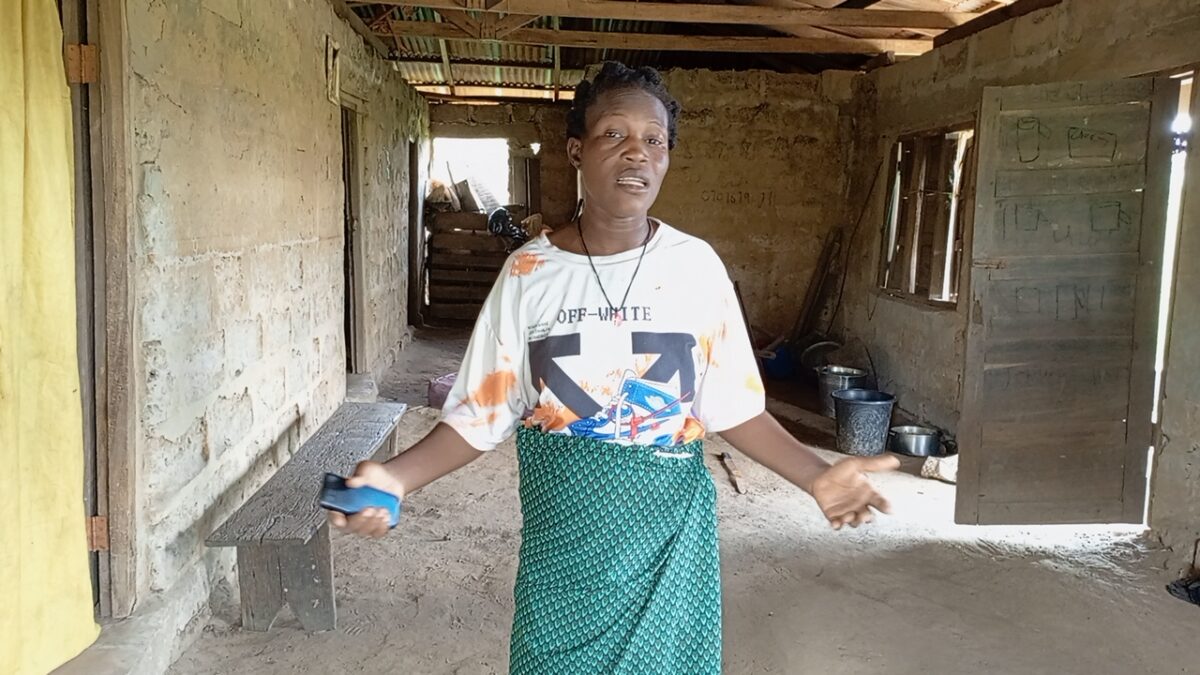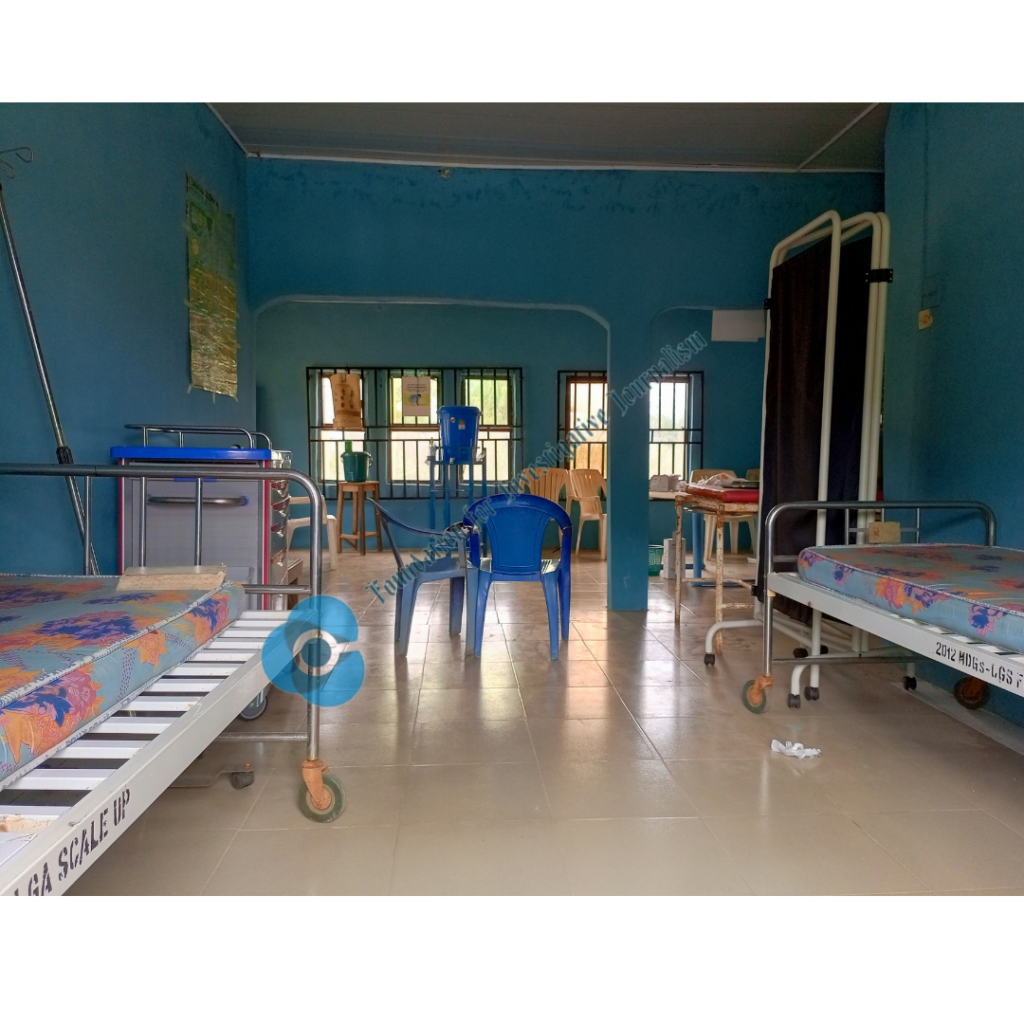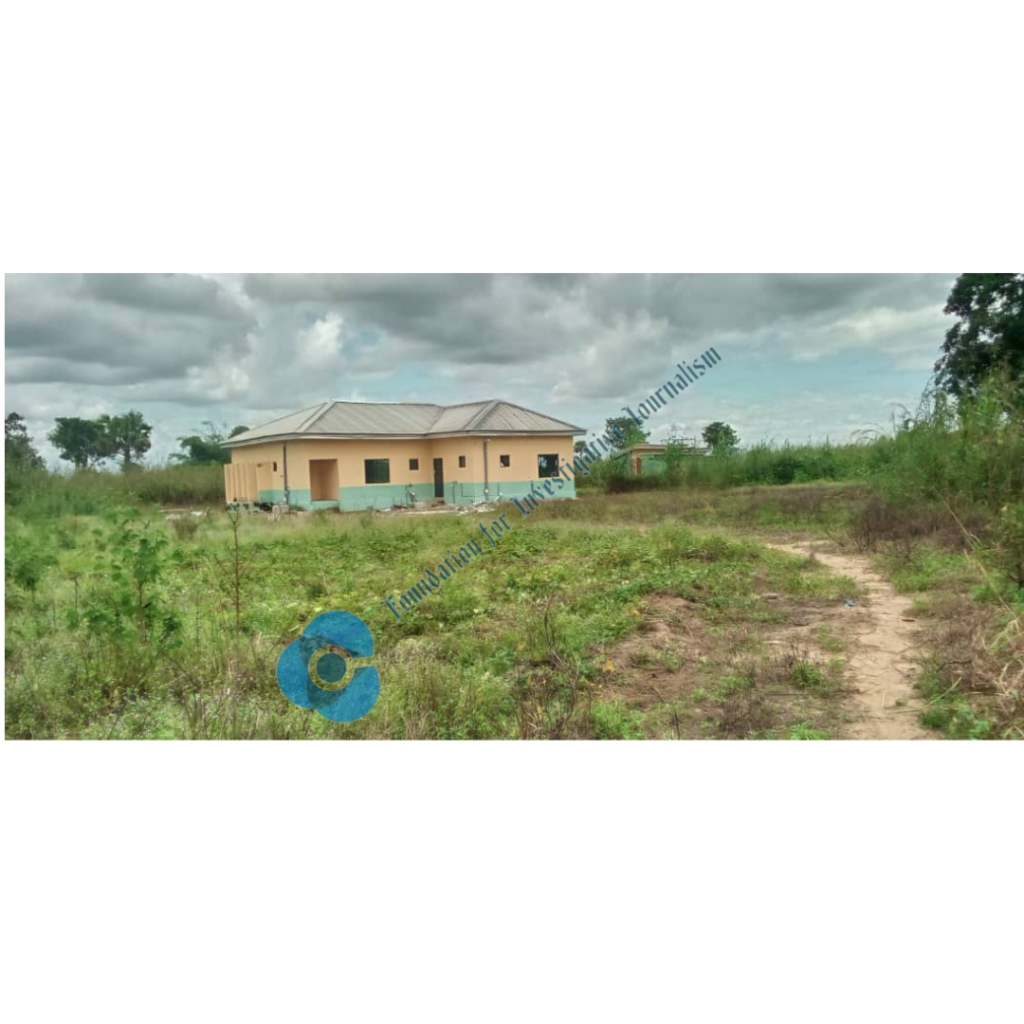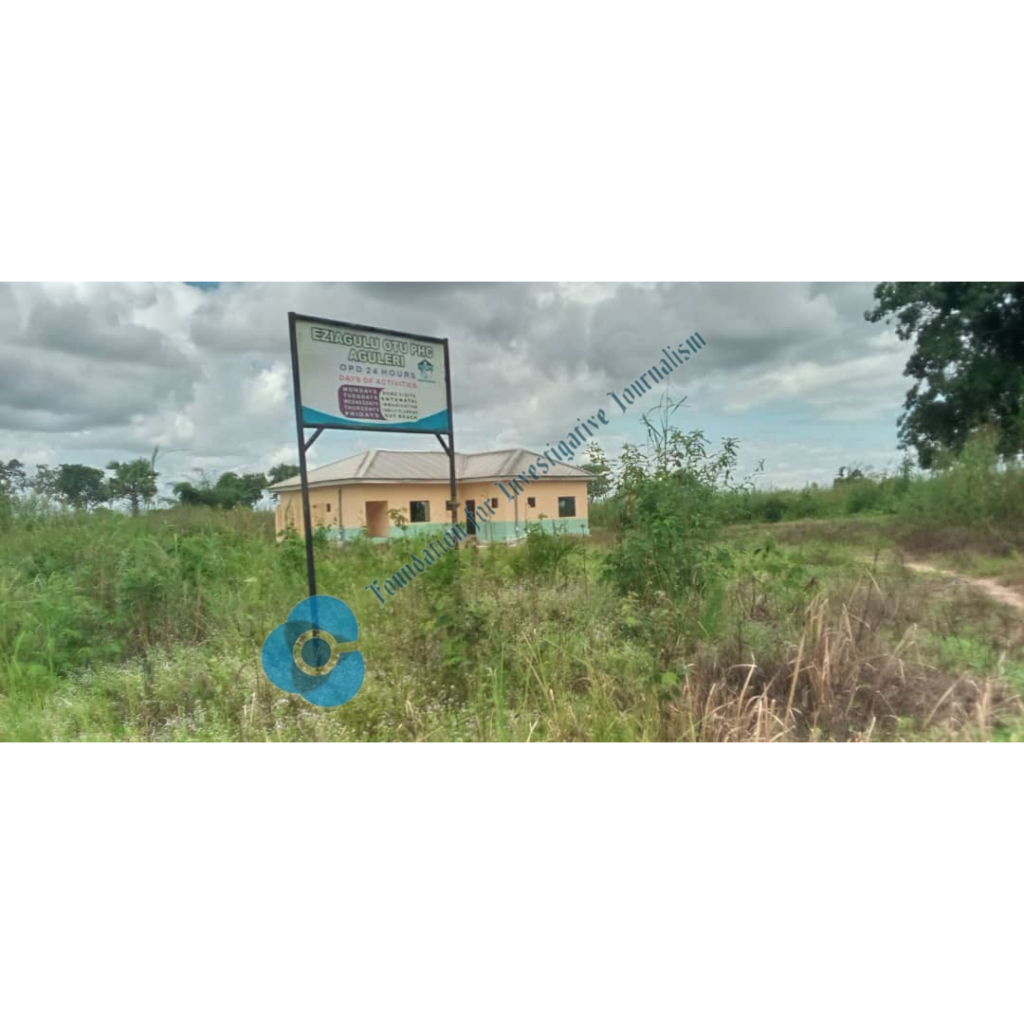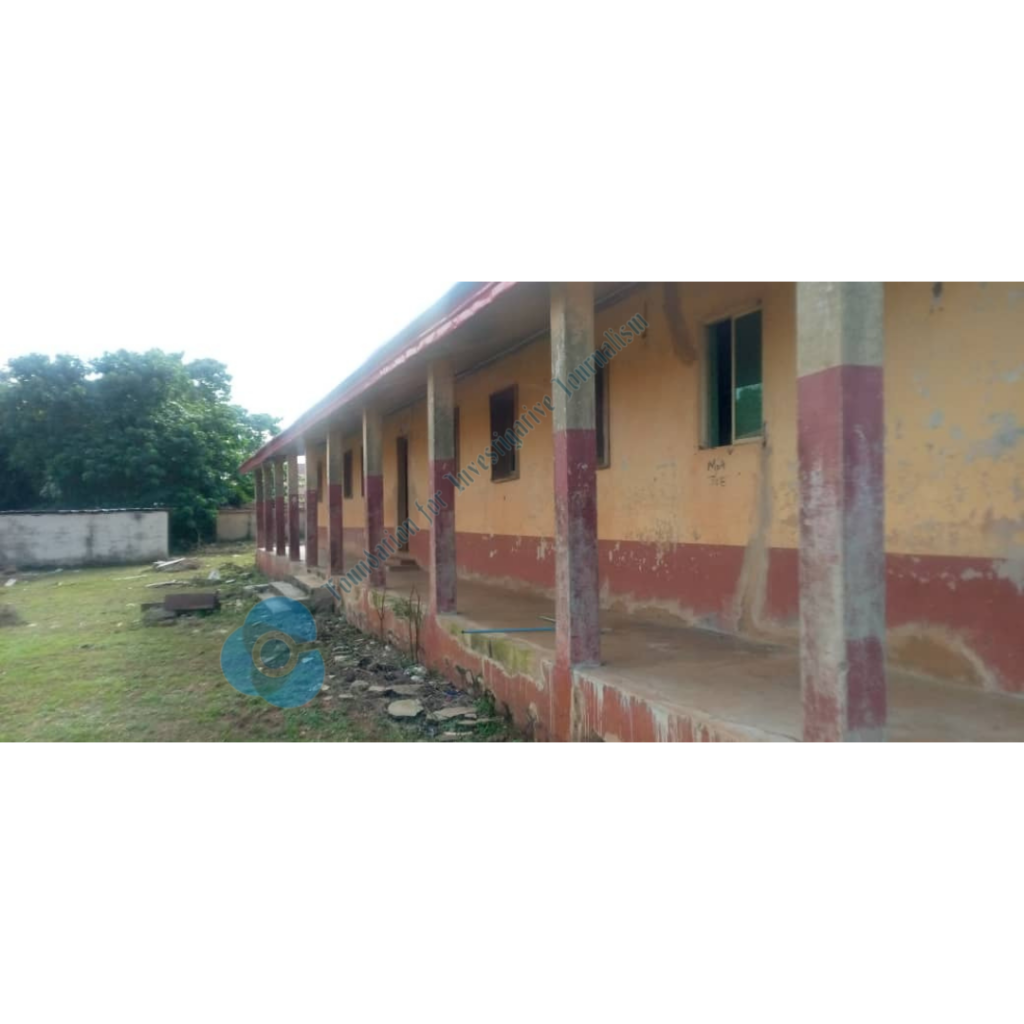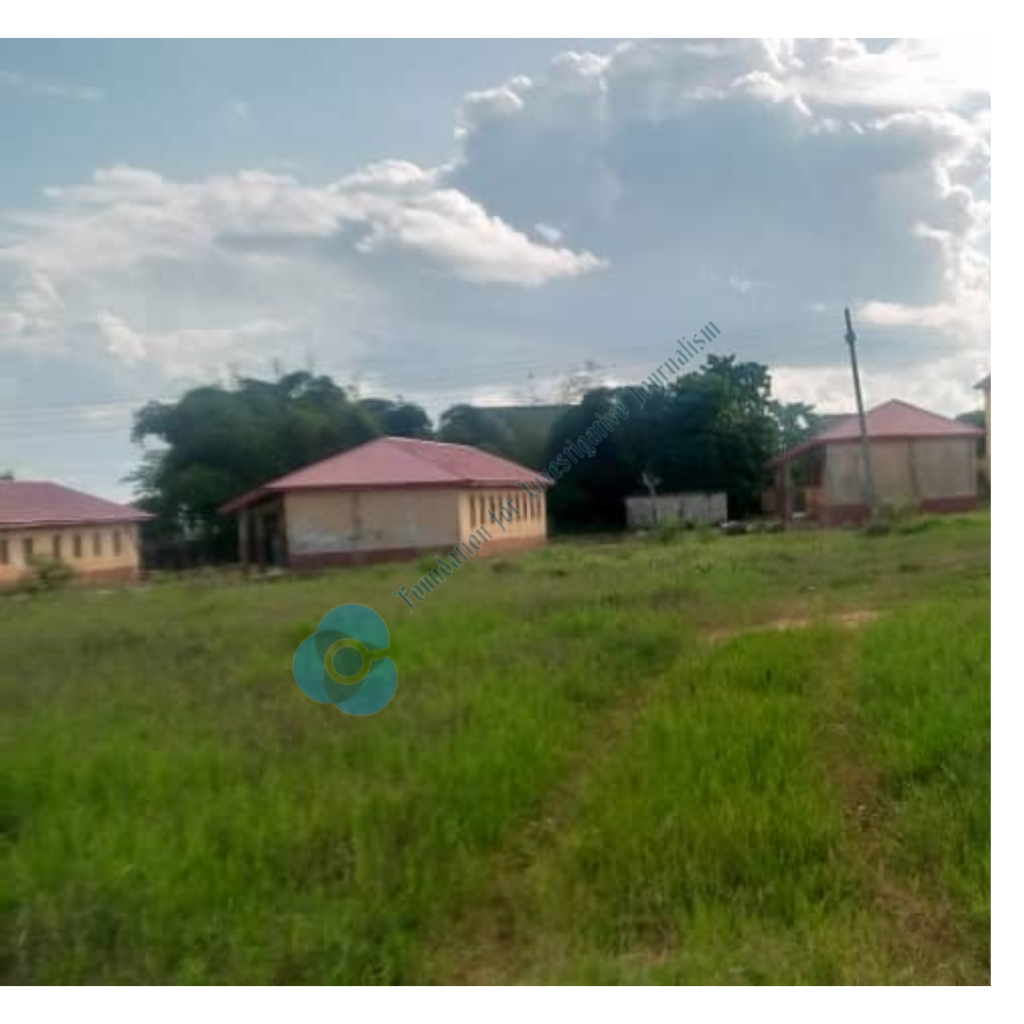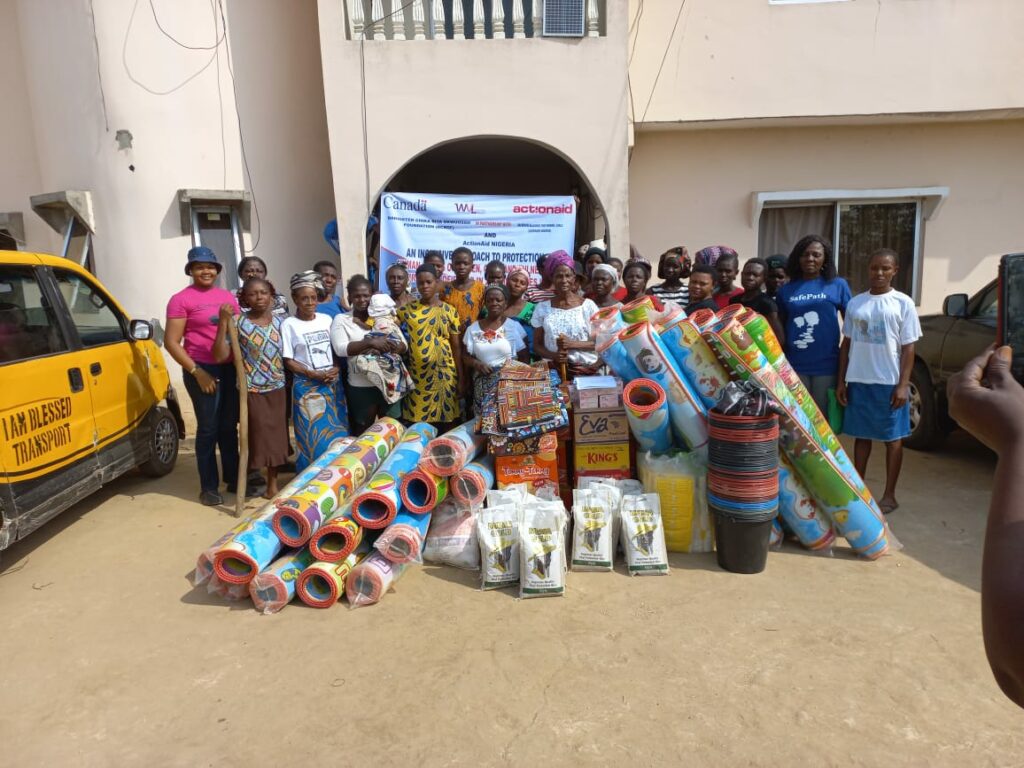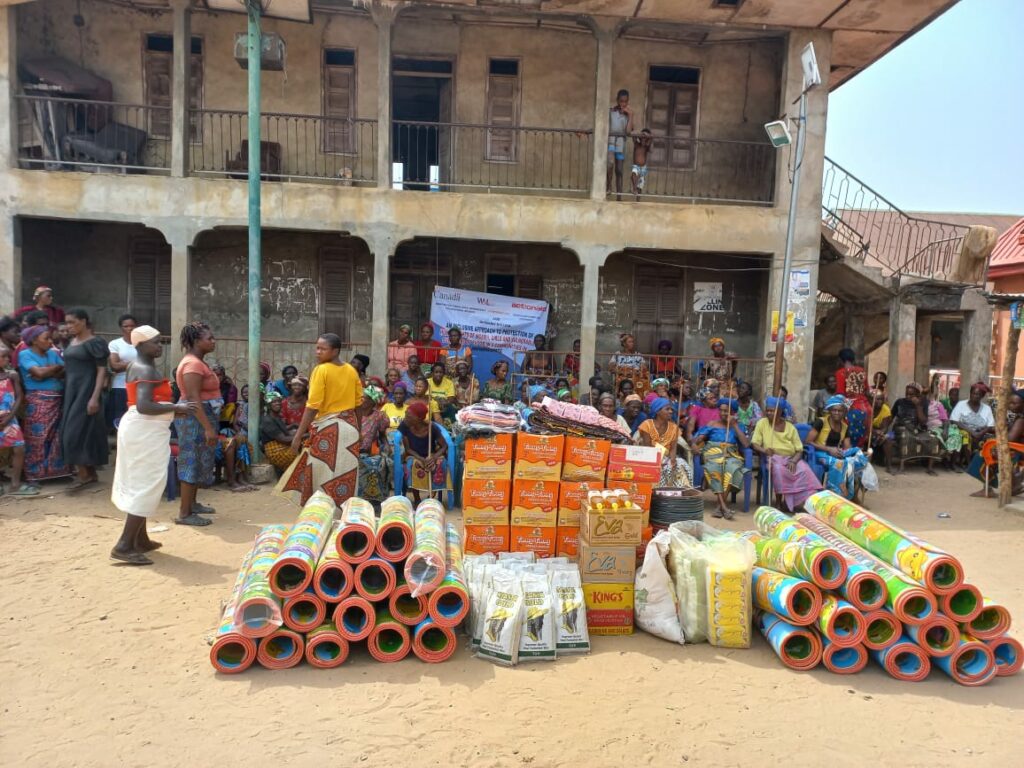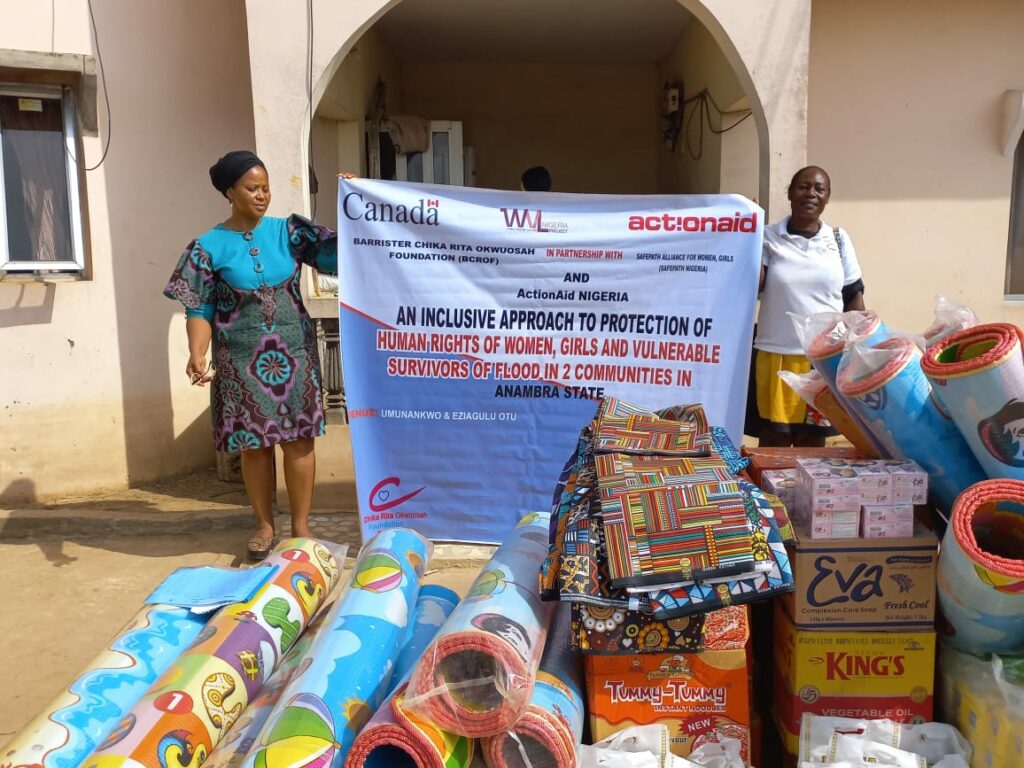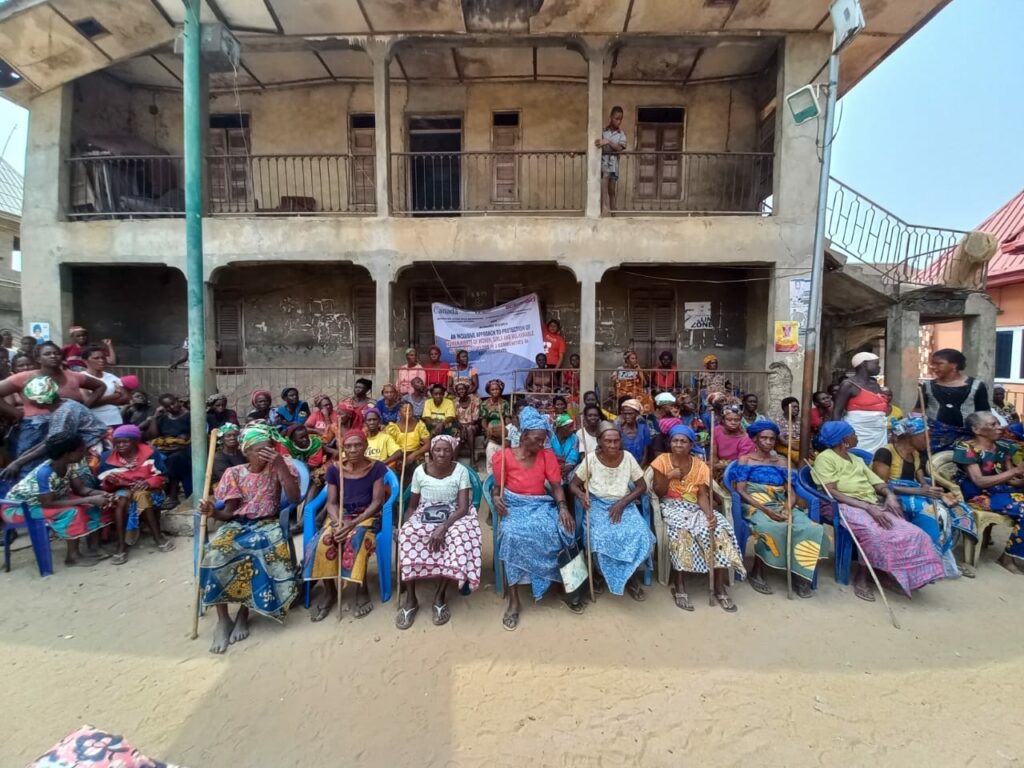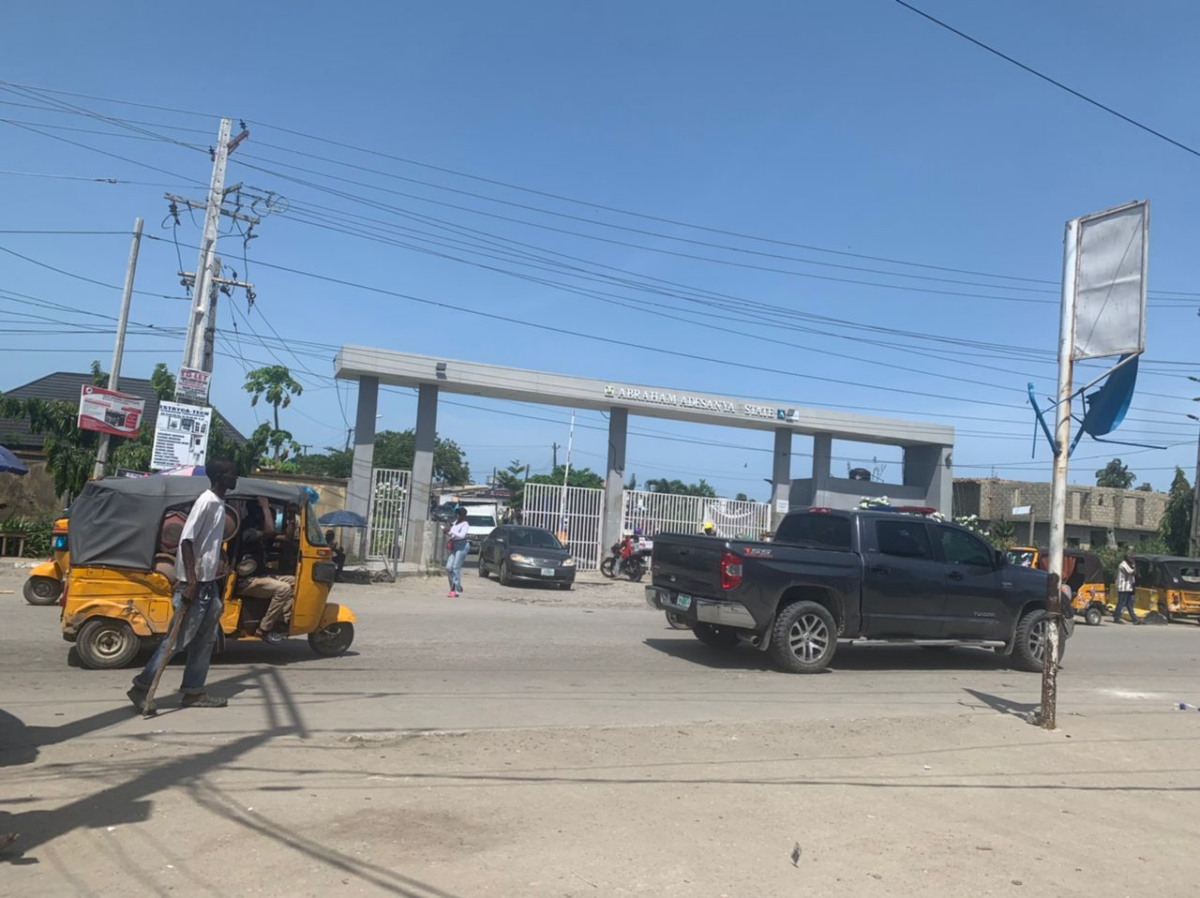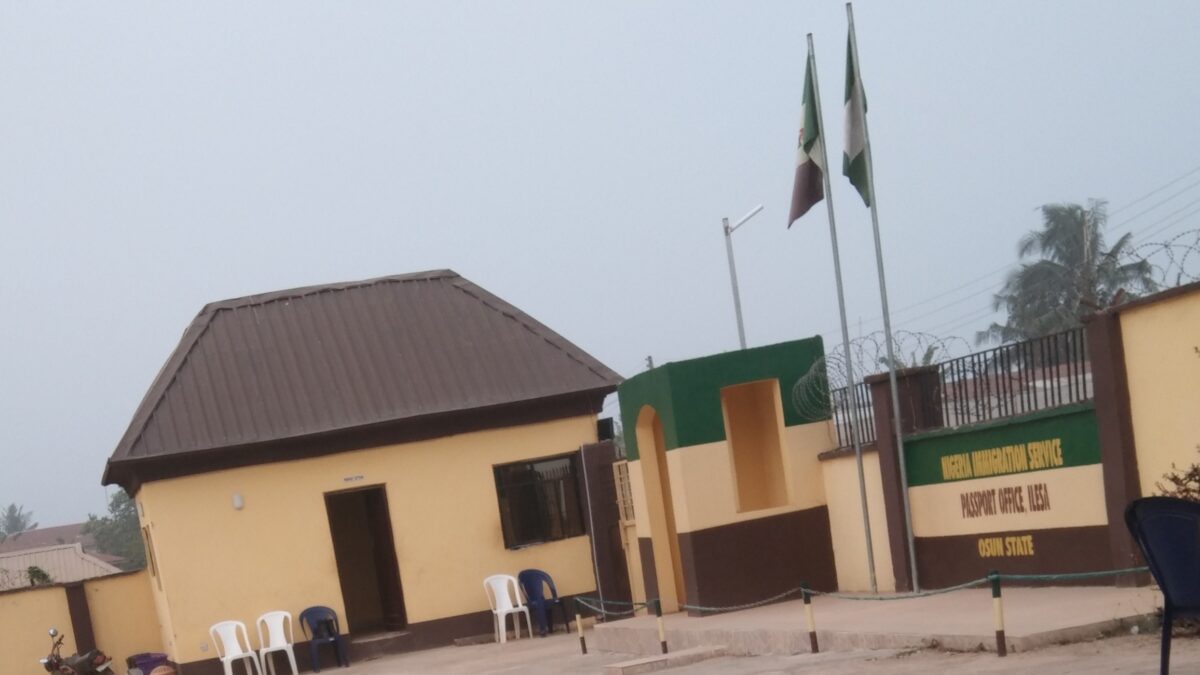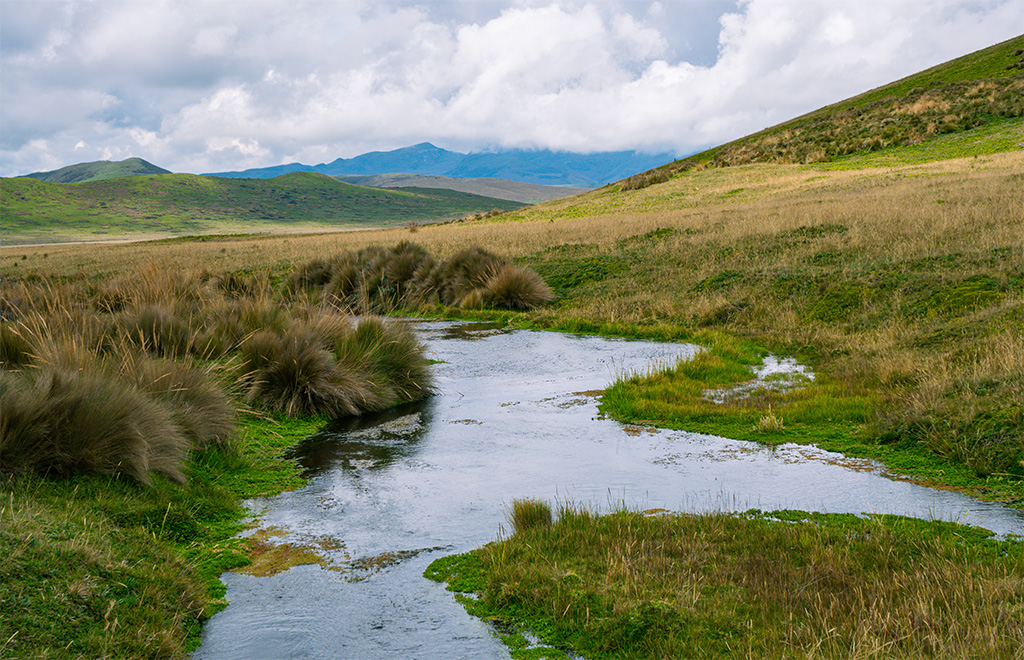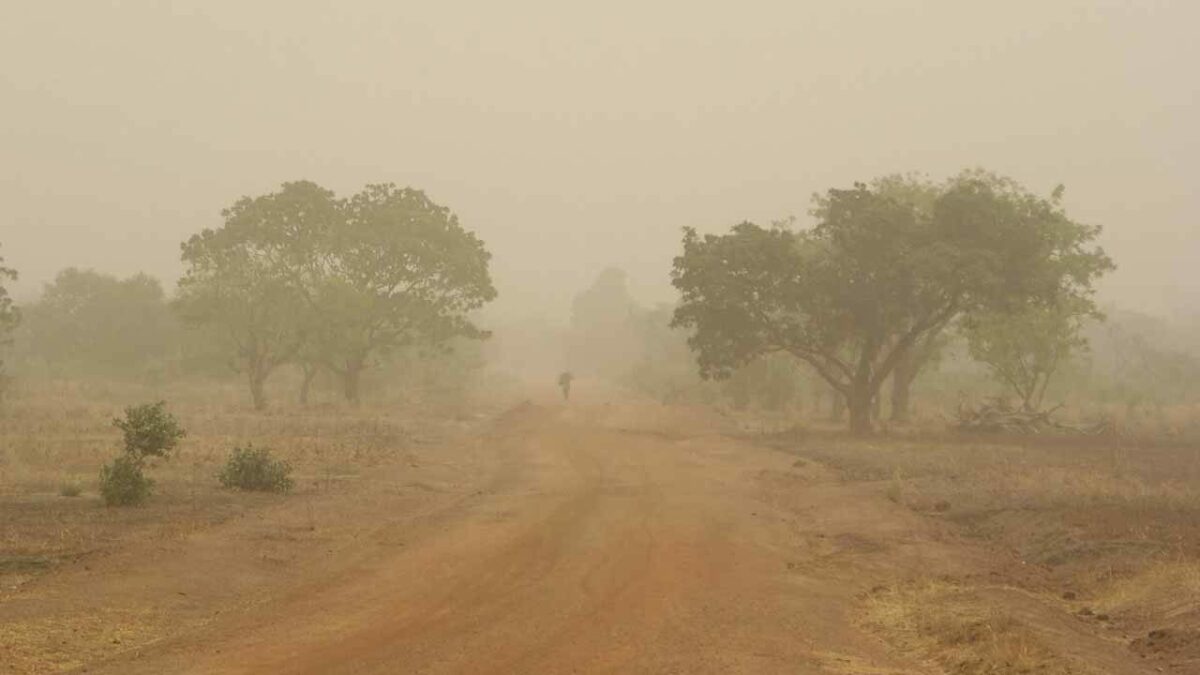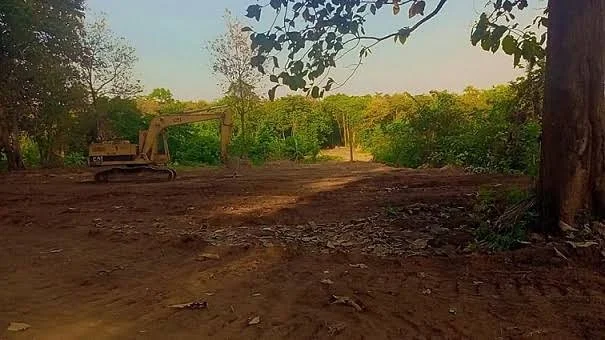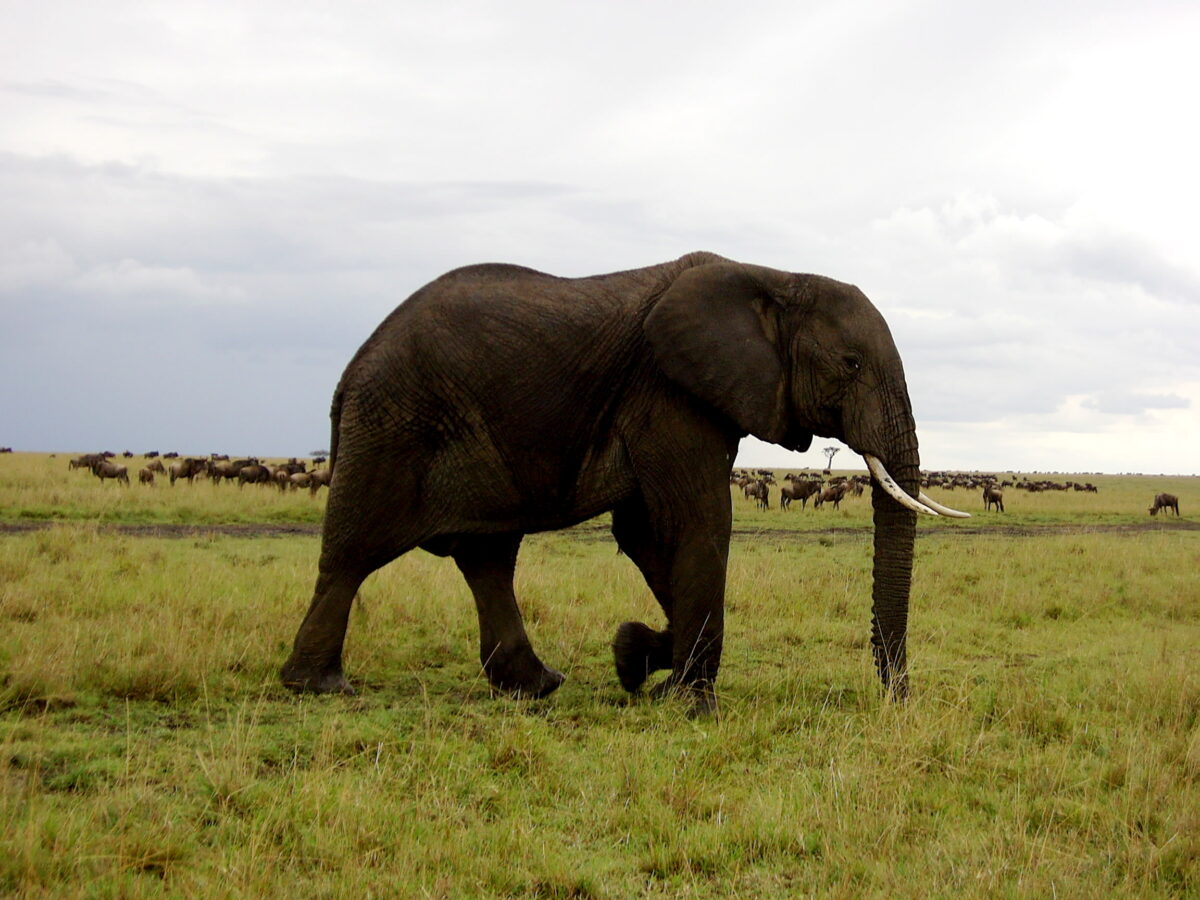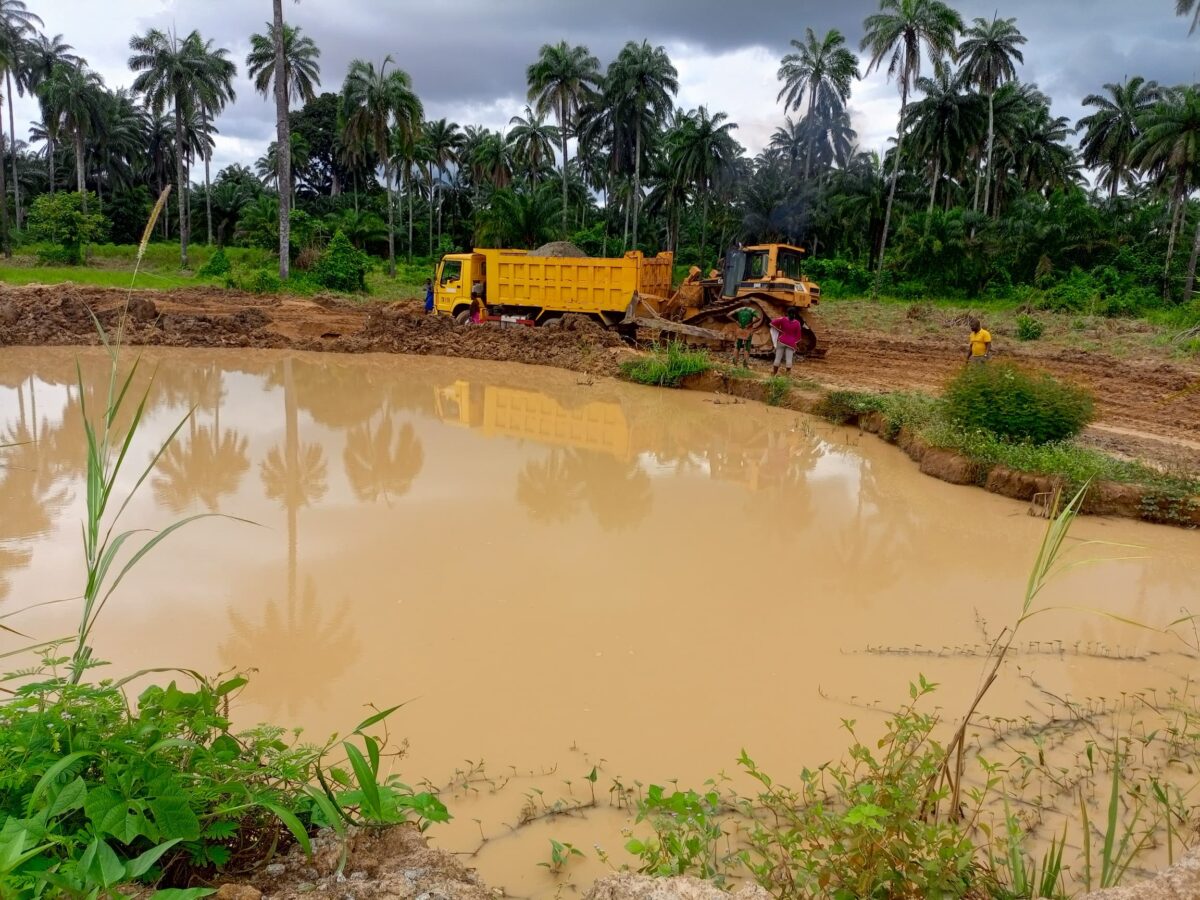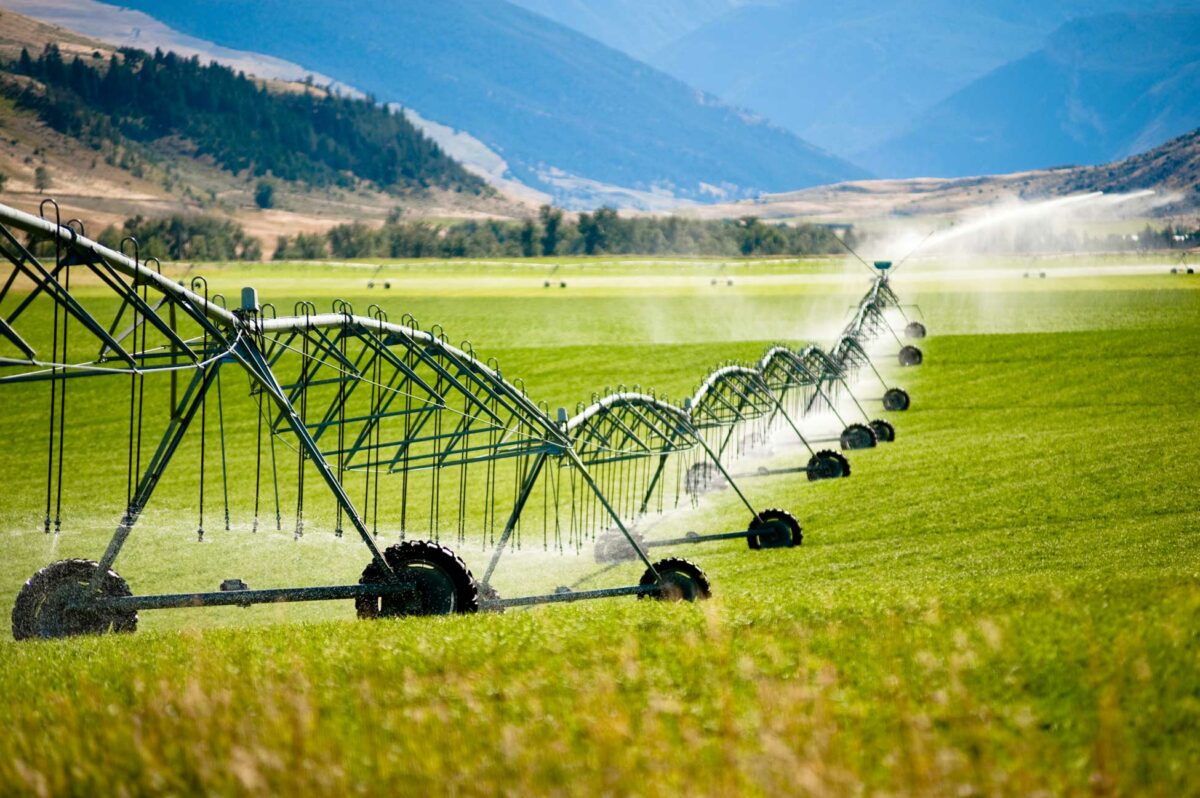On a sunny Wednesday afternoon in early September, Ekene Okechukwu sat in front of her home in Eziaguluotu Community, Anambra East Local Government Area of Anambra State.
She had her legs crossed, palm on her chin, her face looking up to the sky and her head resting on one arm of the blue plastic chair from which she has improvised a bed.
She occasionally adjusted the wrapper tied around her waist, which partially concealed her postpartum belly. Her gloomy look did not immediately send a message. But, as this reporter would later learn, Mrs. Okechukwu’s look tells the story of the harrowing experiences she faced when a flood devastated her and several others in the community.
Mrs. Okechukwu only returned to her house in early December 2022, (about 10 months ago) after an unprecedented flood that wreaked havoc in her community had receded.
In her house, some damaged windows, doors and floor of the house, as well as a blurry portrait on the wall of her living room, bear scars of prolonged submersion.
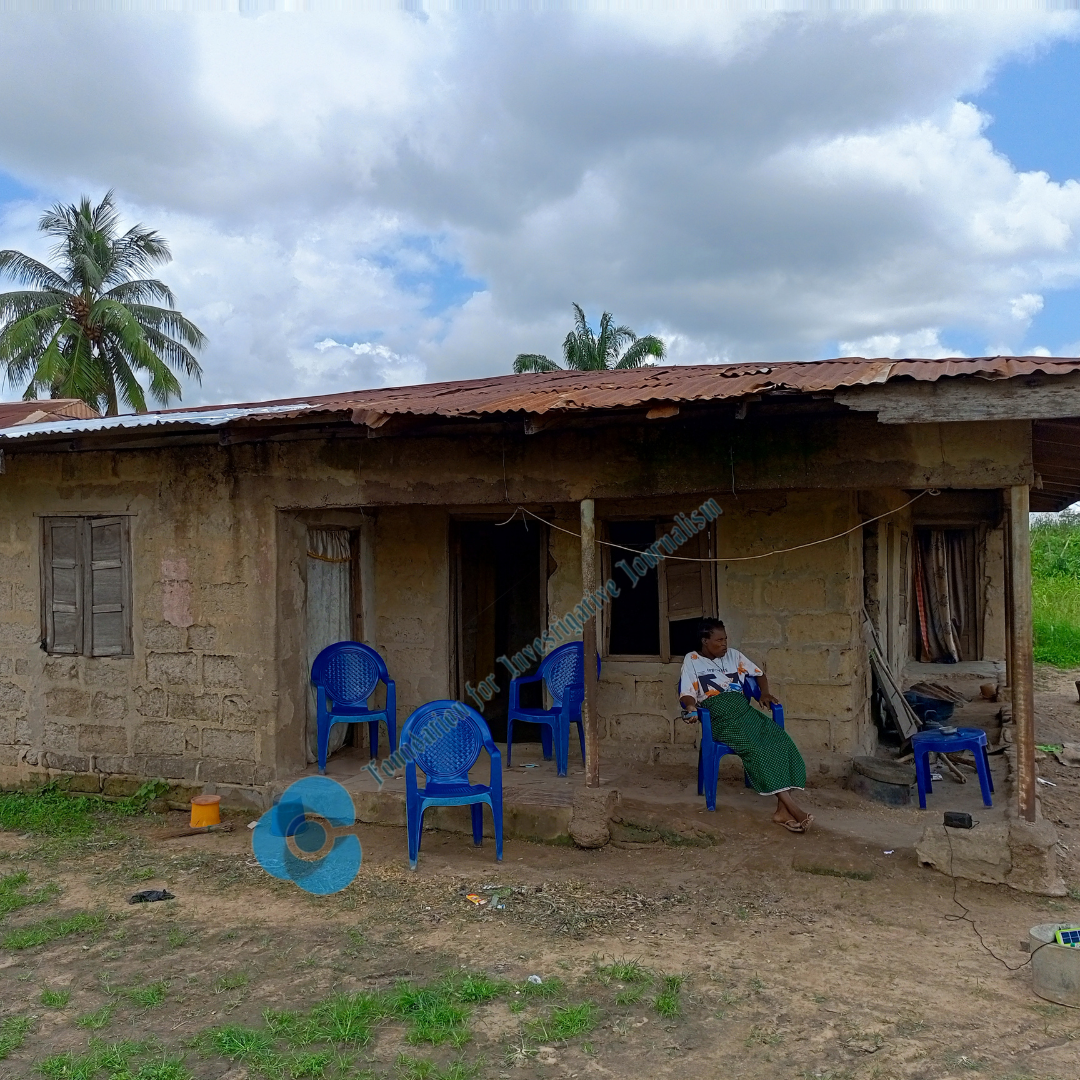
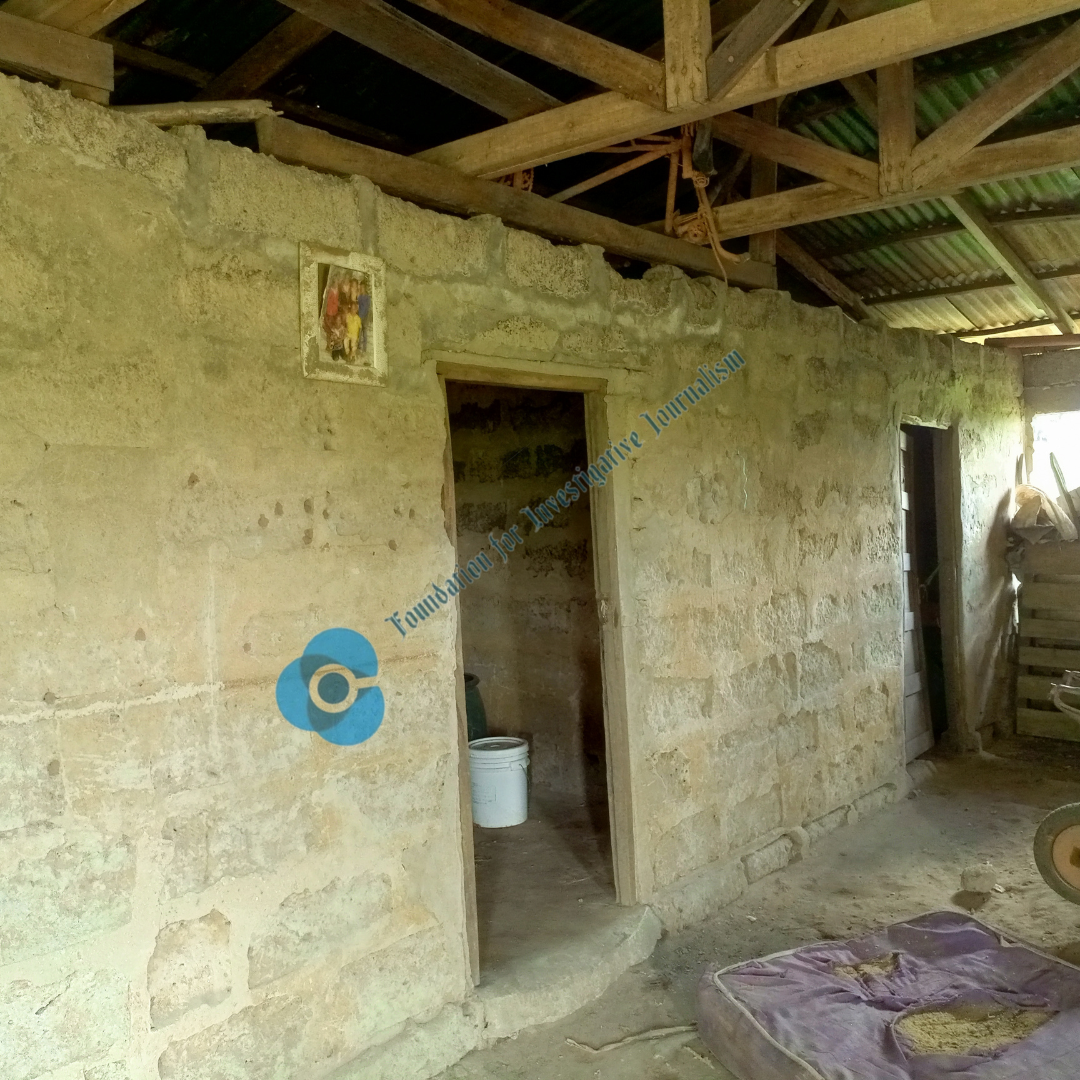
The flood displaced over 1.3 million people, killed over 600 people and destroyed 200,000 houses across the country, according to a report by UNICEF.
Anambra State is one of the Nigerian states known to experience annual flooding, partly due to excessive rainfall, poor planning and the release of excess water from Cameroon’s Lagdo Dam into the river Niger.
The 2022 flood was said to be the worst to hit Nigeria in a decade. The last major flood emergency was between July and October in 2012 when the Niger and Benue rivers overflowed their banks.
Despite early warnings and forecasts by the Nigerian Metrological Agency, many state governments did not prepare for the floods, leading to avoidable deaths and displacements.
Like several other women, Mrs Okechukwu is far from recovering from the wrecks caused by the flood.
Her last baby would have been two weeks old when this reporter visited, but he died barely a minute after she gave birth to him through a caesarean section.
That would be her second time losing a baby ever since she returned from the Internally Displaced Persons (IDP) camp where she had sought refuge.
In early December 2022, soon after the flood receded, she returned to resume life with whatever was left of her farmlands and home. That was when her one-year-old baby took ill and died.
“I tried all I could to save him, but he died on our way to one of the hospitals in the town. This was due to the cold and unfavourable condition of the IDP camp, and the fact that our house was still drying up when we returned,” Mrs. Okechukwu told this reporter, looking rather desolate and hopeless.
The mother of five attributed her predicament to the stress, hunger, sickness, overwork and anxiety she experienced during and after the flood.
“I am not just sad over the death of my children but also worried about repaying the loan I took to undergo CS for the birth of my last child. I have nothing left in my house. I even borrowed this plastic chair I’m sitting on from our community women’s group. I’m just tired of everything,” she said almost in tears.
NOT ALONE
Ekene is just one out of the over 15,421 in Anambra East Council Area and 35,074 individuals in Anambra State displaced by the flood. People like her also make up the 53 percent female population affected by the 2022 flood in Nigeria.
Mrs Okechukwu’s neighbour, Akagana Morah, is another flood survivor from Eziaguluotu Community. Ms Morah was breastfeeding her 10-month-old son when this reporter visited her in September.
Born during the peak of the 2022 flood, her son reminds her of the unforgettable experience she had just at the time she was almost due for childbirth.
Ms. Morah was eight months pregnant when she found herself among over 2,596 persons accommodated at Father Joseph Memorial School, an old hostel building turned into an IDP camp.
A single mother, Ms. Morah described her experience at the camp as terrible both in terms of accessing quality food, healthcare and catering for herself and other kids.
“We ate whatever they offered in the camp, and I depended on just paracetamol for every sickness since there was no money to go to the hospital,” Ms. Morah narrated, looking downwards as though she was ashamed.
A month after arriving at the IDP camp, she was in labour. But with no hospital on the ground, she knew there was a risk of developing complications.
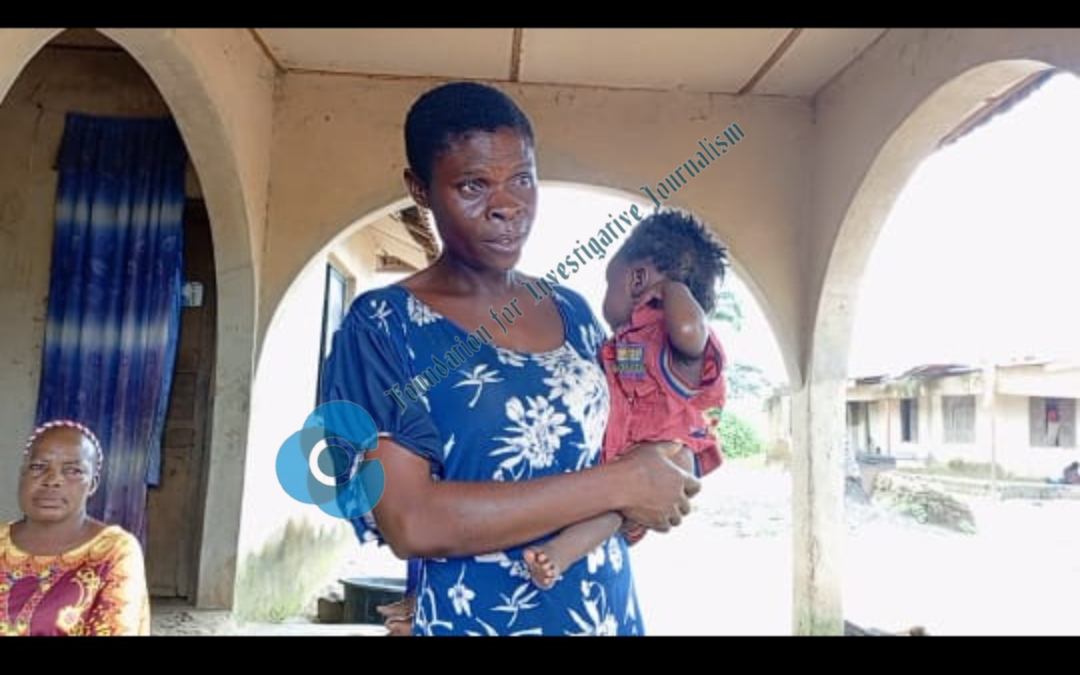
“I was anxious and scared I might die, so I called my brother who lives in a nearby town. Luckily, he took me to the hospital and took care of the bills. I found it difficult leaving my other kids behind in the camp until I returned from the hospital,” she told FIJ.
In Umunankwo, another community located in the Ogbaru Local Government Area of Anambra State, this reporter met with Dilichukwu Obinyiba. She had just finished peeling a heap of cassava prematurely harvested due to rising sea level, which signals another possible flood this year.
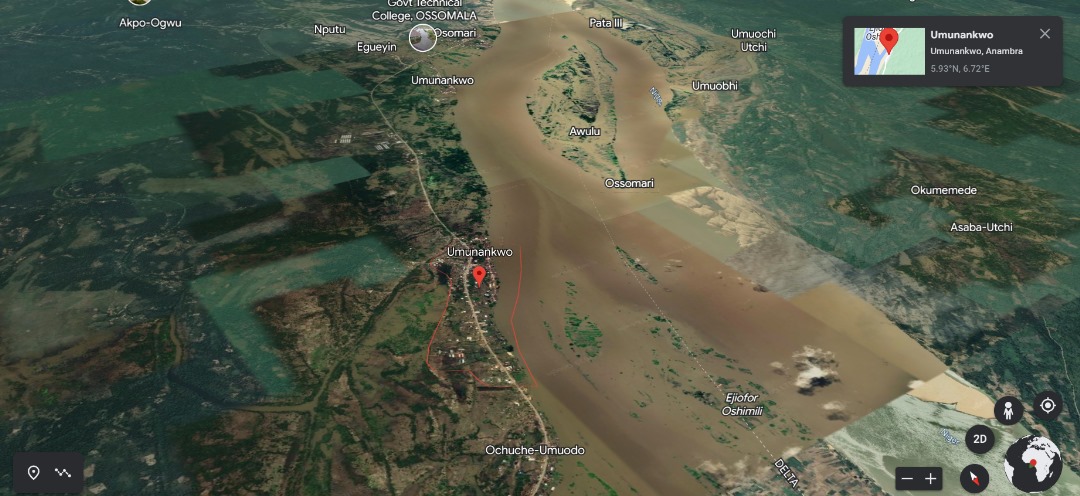
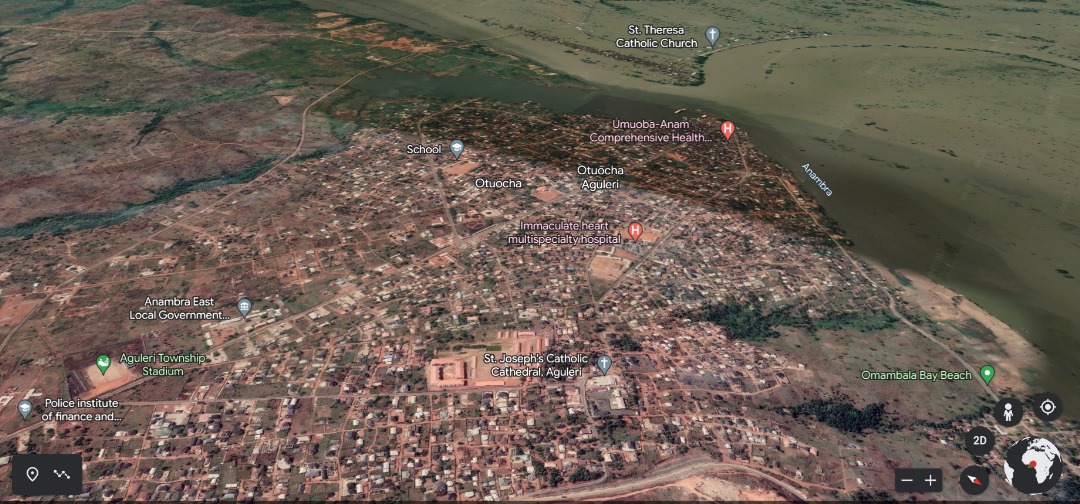
Mrs Obinyiba’s community had the highest number of affected and displaced persons in Anambra state during the 2022 flood because of its proximity to River Niger.
The mother of five recounted how she lost her four-month-old pregnancy through miscarriage during the 2022 flood disaster due to stress, anxiety and depression.
She was among the 160 internally displaced persons accommodated at Ossomala Primary School, one of the makeshift IDP camps located in one of the neighbouring villages.
“I found it difficult to adapt to that kind of place. My children and I suffered severe colds, malaria and infection which cost us so much money even after we left the camp. We bathed, cooked and drank from the same contaminated flood water because there was no place to fetch or buy water at all,” Mrs. Obinyiba told this reporter in a very low tone.
She added that there were no doors in the camp, which made it easy for mosquitoes, insects and reptiles to feast on them.
When her miscarriage happened, there was no means of getting medical attention except for the herbal medicine other women prepared for her to drink at the camp.
“I cried my eyes out and was scared I would die, then I started wailing and calling on God to come to my rescue,” she stated.
Like Mrs Okechukwu in Eziaguluotu Community, Mrs Obinyiba is also suffering the long-term impact of the flood disaster. She says she has been treating infection ever since they returned but hasn’t recovered ever since.
Displacement doom for pregnant women
For women of reproductive age like Mrs. Okechukwu, Obinyiba and Morah, life after the horrible disaster is dangerous and difficult to overcome because of the long-term effect on their reproductive health in addition to the destruction of their sources of livelihoods.
A World Bank report indicates that women and girls are up to 14 times more likely to be harmed during a disaster, and even when life for others may return to normal after the disaster, women are more prone to gender inequalities, making them more vulnerable to GBV and other health challenges.
FIJ found that some of the common experiences shared by women of reproductive age who sought refuge in different IDP camps include lack of proper access to antenatal care, high exposure to infection from drinking and bathing with contaminated water, exposure to mosquito bites, cold, stress, anxiety, inability to take balanced diet and poor access to medical care among others.
“All these experiences not only affect the pregnant woman but the foetus whose survival depends on the mental state, health and condition of the mother, ” says Ozioma Ibeh, a midwife at Pieta Hospital and Maternity, Onitsha, Anambra State.
Ibeh told FIJ that apart from the above-listed experiences, displaced pregnant women are at a very high risk of miscarriage resulting from high blood pressure, which is caused by overthinking. “High temperature and stress, among others, can also make the foetus weak and consequently lead to its death soon after delivery,” she added.
On her part, Chioma Nweme, another midwife at the facility, said untreated malaria and infection are among the leading causes of miscarriage. She added that pregnant women who fail to attend antenatal or feed properly are at greater risk of miscarriage and neonatal death.
“Displaced pregnant women are prone to excessive thinking, which may lead to high temperature and high blood pressure. High blood pressure can cause preeclampsia, a condition that can happen after the 20th week of pregnancy or right after pregnancy. Preeclampsia is one of the leading causes of neonatal mortality, ” Nweme told FIJ.
The presence of contaminants in drinking water can cause serious complications in pregnant women, such as pregnancy loss, stillbirth and preterm birth, among others, as it exposes both the mother and foetus to a great risk and foetal complications, and or death in severe cases, a study has shown.
More so, women need adequate medical care during and after pregnancy. But this is not always guaranteed in IDP camps. While Ms. Morah said the only medicine available to her throughout her stay in the camp as a pregnant woman was paracetamol, other survivors said medical practitioners only came around occasionally.
PHCs in disarray in flood-ravaged communities
Even at home, pregnant women still battle to access quality healthcare with many Primary Healthcare centres (PHC) affected by flooding.
FIJ observed that the only PHC in Eziaguluotu community was in a pitiable state when this reporter visited in September.
The PHC facility, a newly renovated bungalow, was surrounded by overgrown grasses. The facility is located at the extreme of a narrow road dotted by several potholes filled with stagnant water. By the roadside were a few abandoned houses, a school and a big church building that were all once submerged.
Esther Aniekwene, the community’s women leader who took this reporter to the health facility said they had only one nurse working in the facility, who only visited mainly during emergencies. Mrs Aniekwene noted that the nurse would have to be phoned on such occasions.
Survival of the fittest
When a flood submerged different communities in Anambra State, survivors were forced to vacate their homes for an uncertain location.
At different IDP camps, the survivors lived at the mercy of philanthropists and humanitarian organisations who occasionally brought relief materials to them at the camps in the state.
For young men and women, the situation can be easily managed like every other life hurdle, but for pregnant women, nursing mothers, the disabled and the elderly, it worsens an already terrible situation with extra challenges beyond just food, shelter and clothing.
Obalim Anaekwunife, a woman in her mid-seventies, was among those who camped at Father Joseph Memorial School.
For Mrs Anaekwunife, the camp was simply an open place with too many people struggling for very little food and other resources.
“It was an old school block and we had to spread used cement bags on the floor to sleep. If you’re not strong enough to struggle for food, then you’ll go hungry,” she told FIJ.
The septuagenarian narrated how she struggled with young men, women and children to get whatever was being shared.
“For women like me, getting a fair share of food was a big struggle and we are not always successful. Water was always my last resort during those times,” Mrs Anaekwunife narrated.
The journey from Eziaguluotu to Father Joseph Memorial School was a 20-minute drive along a narrow road that was once submerged.
It took another 10-minute drive through Aguleri town to arrive at a very large compound that housed several buildings including classrooms, administrative blocks, hostels and podiums.
At the far end of the compound just opposite the entrance gate were three old vacant buildings.
Rev Fr. Henry Eke, a priest who is now in charge of the school told this reporter that the three buildings are old school hostels which they donated to displaced flood survivors. It was these three buildings that housed over 2,596 persons who sought refuge at the facility during the 2022 flood.
The Catholic priest admitted that there were too many persons at the time but added that the school was not in charge of their welfare in any way.
“There were a lot of NGOs and self-appointed leaders that came around to organise the survivors and distribute whatever was brought to them, we only accommodated them in the old hostels,” he said.
Corroborating Mrs Anaekwunife, Fr. Eke noted that sharing of food and other relief materials was not organised at all and sometimes there were clashes among the several groups.
The cleric also said they had to deal with open defecation since there were no toilets at the time.
“However, the deputy governor of Anambra State and the Local Government Chairman had since visited the premise and have started building toilets in preparation for another flood should there be any,” Fr. Eke told FIJ.
Women-focused NGO to the rescue
When disasters such as flooding occur, survivors are forced to leave their homes to temporarily reside in IDP camps, where they survive only at the mercy of the government, humanitarian organisations and philanthropists who occasionally send them relief materials.
However, after floods or a similar disaster, survivors often return to their homes to meet nothing but ruins. The situation is compounded when their kids cry for food and they have none to give them. For pregnant women and nursing mothers, it is a worse situation given that they would breastfeed their babies even on an empty stomach,
Life becomes even more difficult since the flood has destroyed almost everything they worked for; from home appliances to food items, to clothes and other utensils. They are forced to start life afresh.
The women, who are the primary care providers at home, bear the brunt of such disaster.
This is the case for Ifeyinwa Onumajuru, a mother of six from Umunankwo community, whose last baby was just three months old when the flood came in 2022.
“Our only source of livelihood is farming. But the flood destroyed everything we had, and we managed to feed from hand to mouth both during and after the flood,” Mrs Onumajuru told FIJ.
Touched by their distressing situation, Safepath Alliance for Women and Girls, a women-focused group, came to the rescue of the women by distributing relief materials to help them better settle in their respective homes.
Established in March 2022 by Nkechi Odinukwe, a trained lawyer and independent consultant, the group visited two communities in Anambra State, reaching out to women and girls who were most vulnerable.
The group, while distributing relief materials, gave special preference and unique materials to each of the selected groups of survivors, including pregnant women, nursing mothers, elderly women, teenage girls and the disabled.
Mrs Onumajuru was among those who benefited from the relief materials distributed by the pro-women group in Umunankwo community.
She said she could not believe anyone would remember them even after the flood had receded. She listed some of the materials she received, including a sleeping mat, buckets, hygiene kits (sanitary towels, soaps), wrappers, noodles, salt, seasoning cubes, rice and vegetable oil, among others.
“My family was one of the very few who stayed back in the village during the flood. So, no help came to us as the government and other NGOs focused on those at IDP camps. It was only Safepath that visited us after the flood and no other person has visited ever since,” Mrs Onumajuru told FIJ.
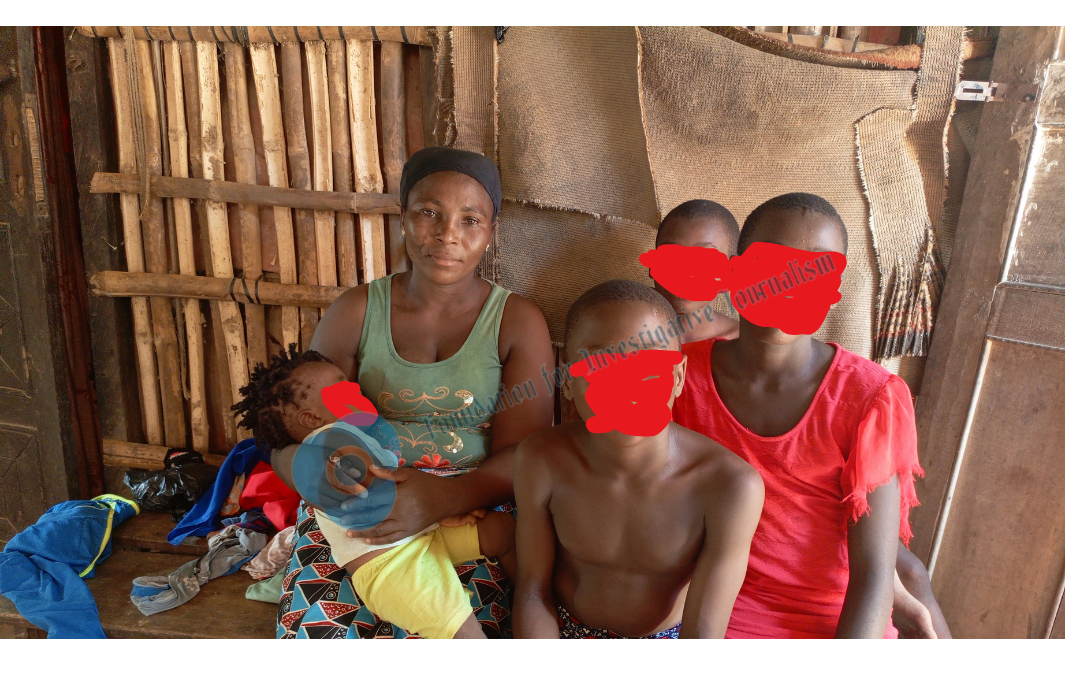
With support from ActionAid, the group managed to provide both food and non-food items to 30 women-led households each in the two communities they visited in December 2022.
Mrs Odinukwe, the founder of the group, told FIJ they could have reached more families but were constrained by limited resources.
This reporting was completed with the support of the Centre for Journalism Innovation and Development.
Subscribe
Be the first to receive special investigative reports and features in your inbox.


